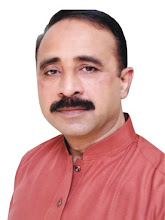Ayurveda is a comprehensive system of holistic health care that originated in India several thousand years ago. Even though the earliest literary references to Ayurveda as a medical science are datable to only around 200 BC, many of the fundamental healing principles, which Ayurveda is based upon, have already been mentioned much earlier in various sacred texts of ancient India. Ayurveda is derived from two Sanskrit words: 'ayus' meaning life and 'vid' meaning knowledge. The 'Science of Life', Ayurveda, is as much concerned with enhancing the quality of life and the prevention of ill-health as it is with treatment of disease.
Ayurveda is firmly embedded in Indian philosophy and its theory of evolution, according to which the universe is composed of five basic elements, namely: Ether, Air, Fire, Water and Earth. These are present in all things, and in the human body they manifest as doshas.
The three doshas, Vata, Pitta and Kapha, are the Primary and Essential Bio-Energetic Forces of the human body. Each has its characteristic site and unique function in the body. They are interrelated and, in their normal state, maintain the integrity of the living organism, conferring strength and assuring normal physiological functioning as well as longevity. The tridoshas need to be in a state of equilibrium for the body to remain healthy. Any imbalance of these bio-energetic forces results in ill-health.
Ayurveda places particular emphasis on the individual constitution, prakriti, of every being, which is determined by the unique combination of tridoshas, genetic factors as well as the health, nutrition and lifestyle of the mother. Prakriti determines an individual's susceptibility to different diseases and has an influence on the course and development of a disease as well as on the complications that could arise and the prognosis.
Proper hygiene, diet and lifestyle are considered in Ayurveda essential pre-requisites for good health. Ayurvedic classical texts provide detailed guidelines for health-promoting daily routines, which must be adapted to an individual's constitution as well as to the seasons and the environment in order to ensure an optimal balance between body, mind and emotions.
Diagnosis:
An Ayurvedic practitioner arrives at a diagnosis through a variety of observation techniques and enquiries, which include Pulse or Tongue reading and other forms of body examination, an in-depth assessment of diet and lifestyle habits, an analysis of mental and emotional states as well as a very detailed history taking. Most importantly though, a practitioner gives patients the time and space to express themselves and listens with great attention to detail. Therefore, a typical first consultation will usually take one hour or even longer.
An Ayurvedic practitioner arrives at a diagnosis through a variety of observation techniques and enquiries, which include Pulse or Tongue reading and other forms of body examination, an in-depth assessment of diet and lifestyle habits, an analysis of mental and emotional states as well as a very detailed history taking. Most importantly though, a practitioner gives patients the time and space to express themselves and listens with great attention to detail. Therefore, a typical first consultation will usually take one hour or even longer.
Treatment:
The skill of the practitioner lies in assessing a patient's constitutional type, in diagnosing the root cause of imbalance that manifests as disease, and in selecting appropriate remedial interventions from an array of therapeutic options. Treatment is always tailor-made to the individual in question and can include Simple Diet and Lifestyle Advice, Herbo-mineral Supplements or Medicines, Physical Treatments like Full-body Massage or Local Applications, Psychological and Emotional Consulting, Meditation, Yoga or other forms of subtle therapies.
The skill of the practitioner lies in assessing a patient's constitutional type, in diagnosing the root cause of imbalance that manifests as disease, and in selecting appropriate remedial interventions from an array of therapeutic options. Treatment is always tailor-made to the individual in question and can include Simple Diet and Lifestyle Advice, Herbo-mineral Supplements or Medicines, Physical Treatments like Full-body Massage or Local Applications, Psychological and Emotional Consulting, Meditation, Yoga or other forms of subtle therapies.
Panchakarma, a very effective Ayurvedic treatment, aims at deep body cleansing and the restoration of a healthy metabolism. It includes elaborate preparatory procedures, emetic and purgative processes and also enema treatments. After panchakarma, various rejuvenating and immuno-modulating therapies are used to increase strength, resistance and overall vitality - on physical, mental and emotional levels - so that patients can experience and enjoy health, well-being and longevity.
Refference:
www.ehpa.eu/herbal_traditional_medicine/ayurveda/index.html








0 comments:
Post a Comment